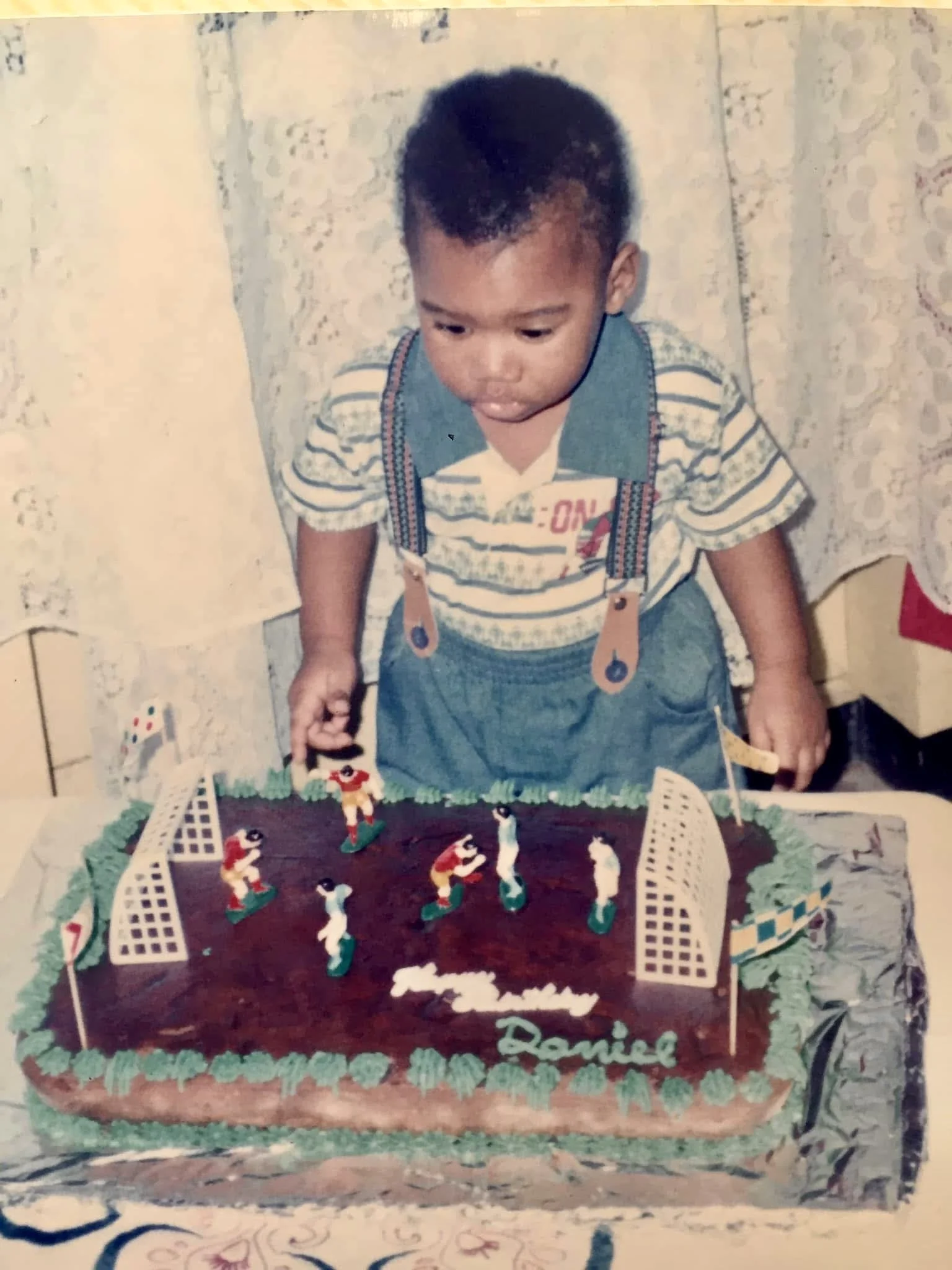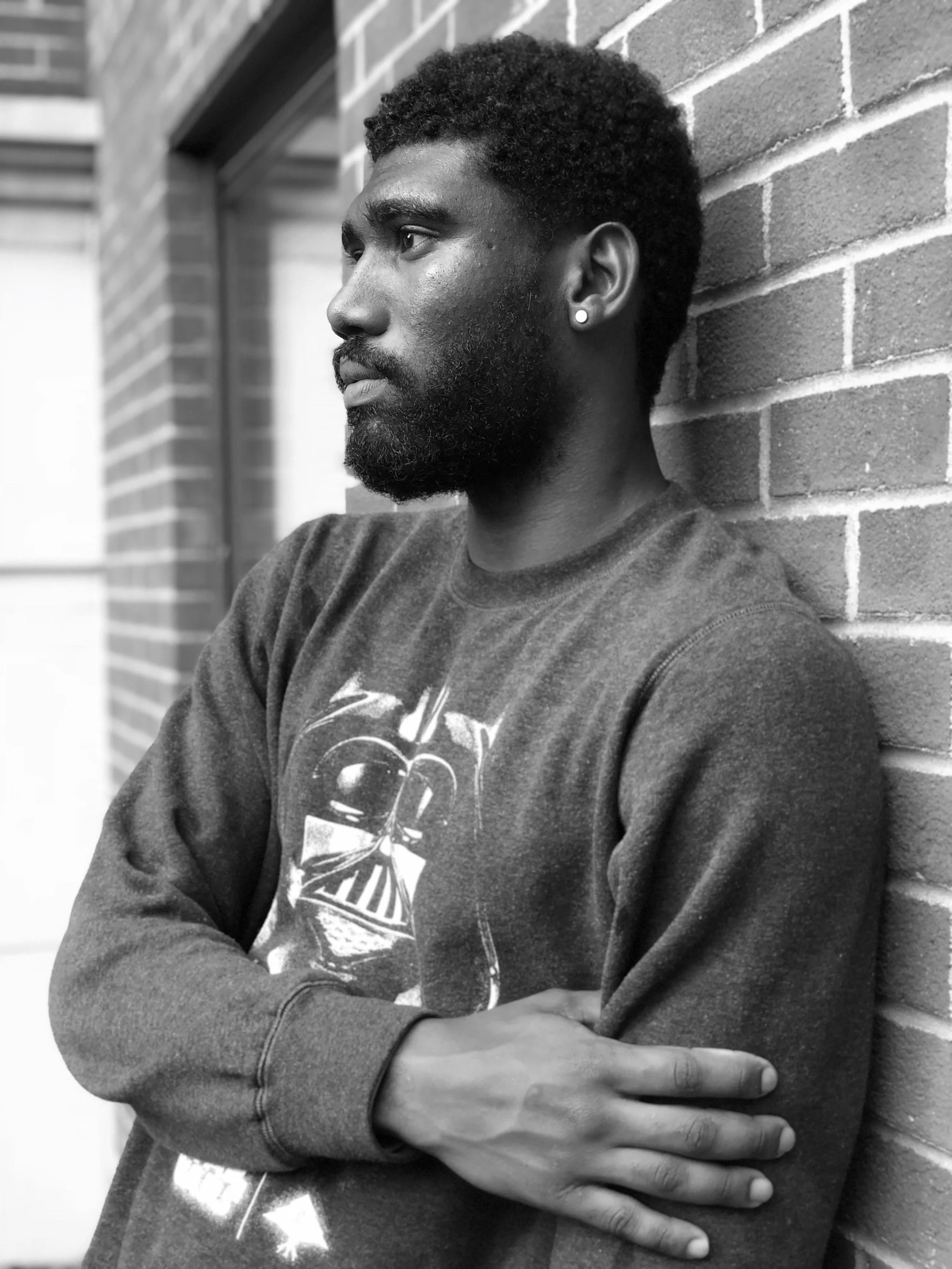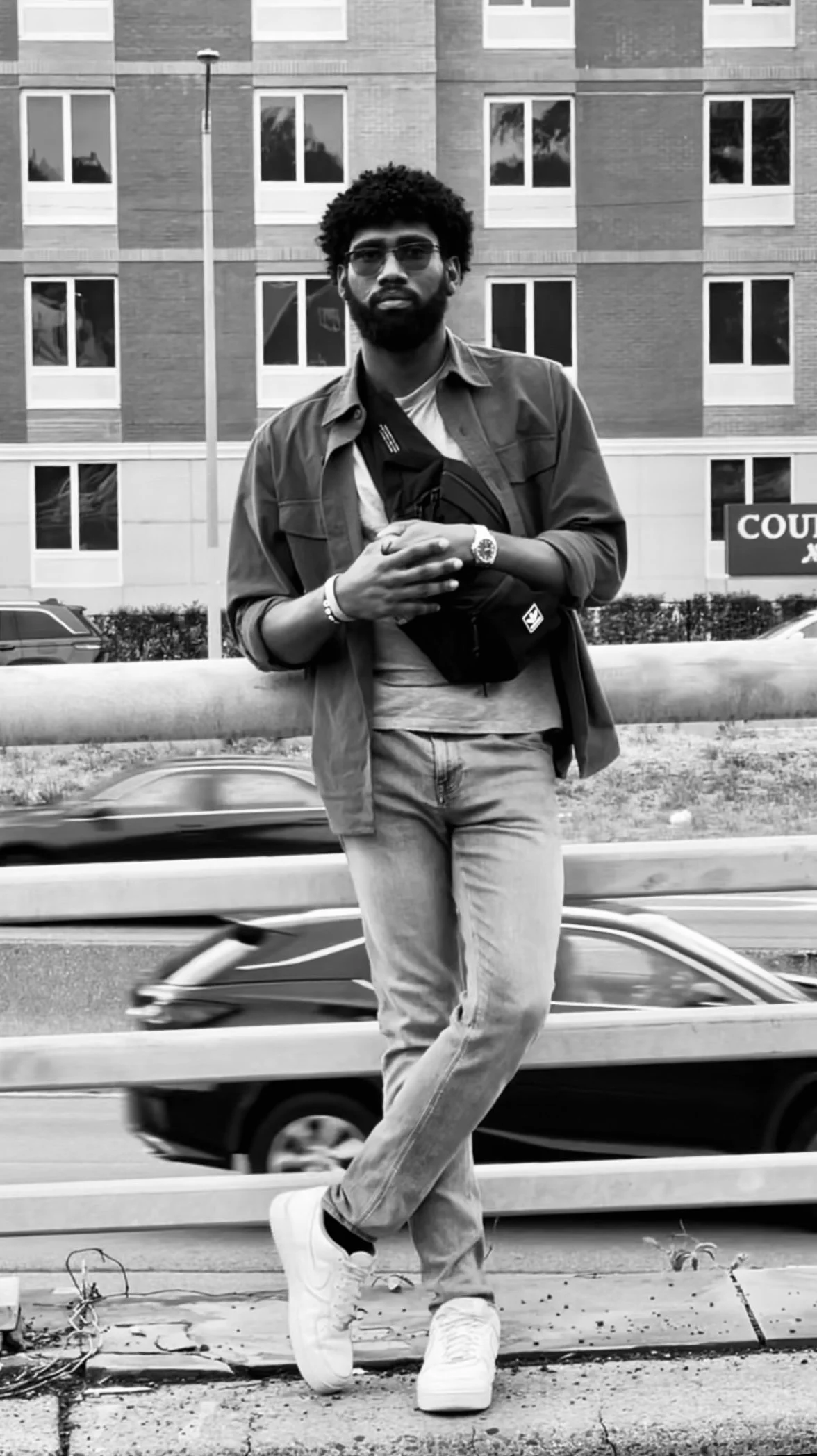Blind Spots and Breakthroughs: Embracing Rule #2
My first birthday (1997)
A week and a half into the new year, I started writing this on the M train. I was headed to the Queens Library to volunteer and continue my second week of this commitment—of my time, my energy, and my presence—to something outside of myself. Well, a few days have passed since then, and now I’m sitting at my desk, penning this entry.
In my last journal entry, I wrote about my time of reflection over the Christmas week and finding the note: “A Coach’s Playbook for Life,” taken from the Netflix limited series back in 2021. I wrote about finishing the race and what that meant to me over the last eight Christmases since I left Guyana’s shores. It was the first of a series of journal entries I’ve decided to write based on the rules, now three years later.
Admittedly, as much as I’ve had these rules written down and pinned in my notes—an app I use multiple times a day—I never truly learned the rules, applied them, or lived by them. In many ways, my decision to write about them now is a commitment to understanding them better. My learning is progressive, but my actualization is instant. This is also me being very much accountable.
That said, and maybe a bit too much said, today I write about
Rule #2: DON’T BE A VICTIM:
“Pick yourself up irrespective of the beating life doles out, and also, never be someone else’s victim.”
It’s fair to say that at some point, we’ve all been victims. I think it’s also fair to say that we’ve all felt like a victim—whether a victim of circumstance, the patriarchy, the system, or someone else’s actions.
When I first revisited this rule, my knee-jerk reaction was to internalize it and start hastily crafting my defenses. I heard myself say, “Well, Daniel, you’re not a victim. You don’t make yourself a victim. You’re a survivor, a fighter, and resilient. You’re all these things you’ve said about yourself and heard others say about you.”
But instead of leaning into that deceptive comfort, I did what the teacher in me would advise my scholars to do:
Grab the dictionary and define the word.
Read it a few times to fully understand it.
Process it with clarity and intention.
Merriam-Webster defines the word "victim" as a noun, offering the following definitions:
“One that is acted on and usually adversely affected by a force or agent.”
“One that is injured, destroyed, or sacrificed under any of various conditions.”
“One that is subjected to oppression, hardship, or mistreatment.”
“One that is tricked or duped.”
As I let my initial instinct to defend myself drift away and instead processed this deeply, I realized something important. Despite considering myself healed from the circumstances and situations where I had once been a victim—I wasn’t, and I still am not. Healed means fully well again.
The Residue of Victimhood
This realization, though humbling, brought with it a sense of liberation. It illuminated the fact that while I’ve moved on from certain situations, their remnants—the residue of victimhood—still linger in blind spots I didn’t fully know existed. These blind spots influence my decisions in subtle ways, often from the shadows, and not always for my greater good.
October 2019
For example, I’ve noticed how I sometimes carry an instinct to overcompensate, to prove I’m not weak or broken. I also carry an instinct to prove my worth—a remnant of the rejection I faced at the hands of my biological mother and her side of the family. Or how I unconsciously avoid situations that remind me of past hardships, even when those situations could offer growth. Or how I silence my voice; don’t ask for help or speak about my needs because I’m “conditioned to the suffering of being alone.”
In recognizing these patterns, I see how the remnants of victimhood can shape the way I show up in the world and interact with others—especially the ones closest to me. I see how it shapes how I show up for myself and take care of my own needs without reacting impulsively. Slowly, I am learning to interrupt those patterns. One small success came recently when I spoke up about a personal need, asking for time and space to decompress after a long day. It was a small ask, but it felt monumental.
Choosing Empowerment
But here’s where the power of Rule #2 comes in: recognizing these blind spots doesn’t make me powerless—it makes me accountable. To me, this rule is not about denying pain or pretending past harm didn’t happen. It’s about choosing not to let that pain define you.
Being a victim is, in some cases, unavoidable. It happens when life throws its hardest punches. But staying a victim? That’s a choice. And one I refuse to make.
Living by Rule #2 means actively choosing to reclaim my agency. It means saying, “Yes, this happened to me, but I will not let it dictate my narrative.” It’s about stepping out of the shadows of those blind spots and confronting them head-on, not with shame but with curiosity and determination to grow. It’s hard, harrowing, and feels hazardous, but it is deeply rewarding.
Refusing to Be Someone Else’s Victim
The second part of the rule is equally important: never be someone else’s victim. That’s harder to unpack because it forces us to confront situations where we’ve allowed others to hold power over us. Whether through unhealthy relationships, toxic workplaces, or systems of oppression, there’s a risk of relinquishing our agency to others.
For me, this has meant setting boundaries—both with others and with myself. It’s recognizing when I’m allowing external forces to dictate my worth or my path and stepping back to reassess. It’s also about speaking up for myself, even when my voice shakes. As someone with so much to say, I find I sometimes say nothing at all. The ingrained thought patterns behind “being seen and not heard,” as every Caribbean child was told to be, run deep—but I am working to unlearn them.
A Continuous Journey
As I sit with Rule #2, I realize this journey isn’t about perfection—it’s about persistence. It’s about showing up for myself every day, even when it feels uncomfortable or challenging. It’s about being honest with myself about where I’ve been and where I want to go. But most of all, it’s about being present in every moment, without worry of tomorrow since, as the good book says in James 1:2-4:
“Count it all joy, my brothers, when you meet trials of various kinds, for you know that the testing of your faith produces steadfastness.”
Embracing Rule #2 doesn’t mean I’ll never stumble or feel hurt again. It means that when I do, I’ll pick myself up and keep going. Because I’m not just a survivor—I’m an active participant in my own story, painting with broad brushstrokes on the canvas of my life.
As I continue this journey, I invite you to reflect on your own. What stories are you telling yourself, and how can you reclaim the pen?
And that, to me, is what not being a victim is all about.
Mr. Haynes and KebtheKing face off in arm wrestling in 2022.



